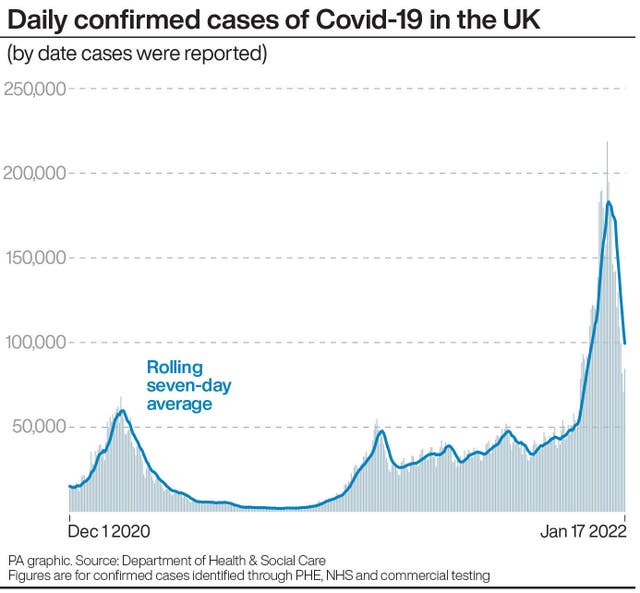Experts hope the “direction of travel” for Covid-19 variants is that they become less severe, a leading expert has said.
Professor Andrew Hayward, a member of the Scientific Advisory Group for Emergencies (Sage), told Times Radio it “doesn’t do the virus any good” to increase in severity, though new variants may prove to be even more transmissible than Omicron.
He said that any new variant would need to “out-compete Omicron” through increased transmissibility or escape from immunity, and not through changes in severity.
“It doesn’t do the virus any good to become increasingly severe,” he said.
“In fact, it looks like the Omicron variant, by becoming more transmissible, that it’s also become less severe, and we would hope that’s the general direction of travel.”
“We need to wait for the evidence on that.”
Prof Hayward said he agreed the “pandemic will end” and people will live with the virus continuing to transmit “but causing much less disruption”.
He added: “It will tend to, I think, settle into a seasonal pattern – we may still get quite big winters of infection but not the sort of level where we can justify wholesale societal closedown.
“So, I think it is genuinely an optimistic picture, but we’re still not quite there yet.”
The University College London (UCL) expert said there were “very encouraging signs” of cases plateauing or dropping in some places, but nobody was sure whether they will stabilise at a very high level or dip down.
The latest UK data shows 84,429 people were reported as positive for Covid on Monday, with the seven-day rolling average showing a 42% drop in cases in a week.
Meanwhile, hospital admissions remain fairly static, though they are falling in some parts of the country.

Across England there are currently 16,621 Covid patients in hospital, down from 17,120 a week ago.
Elsewhere, Dr David Nabarro said it is “important that there is no premature promising that restrictions will end at a particular time” after suggestions the Government will drop Plan B at the review stage on January 26.
The World Health Organisation’s special envoy on Covid-19 told BBC Breakfast: “I’m a public health person … I would not be making promises some time in the future because, once you make a promise, it’s super hard then to change what you’re going to do – you feel you’re kind of doing a U-turn.
“This virus is constantly evolving and it’s super hard to predict where it will be – we can say where we hope we’re going to go, we can say where we’d like to go, we can say what we think we need to do to get there – but making promises that we’ll do something on a particular date, I think, is unwise.”
Dr Nabarro reiterated his view that the situation in the UK “gives us grounds for hope” but continued to urge caution.
“The goal that we’re all aiming for is a situation where this virus is present, but life is organised so that it is not disrupted,” he said.
“We also need to be humble, this virus is continuing to evolve and we’re never quite sure that we know exactly where it’s going to go next.”






